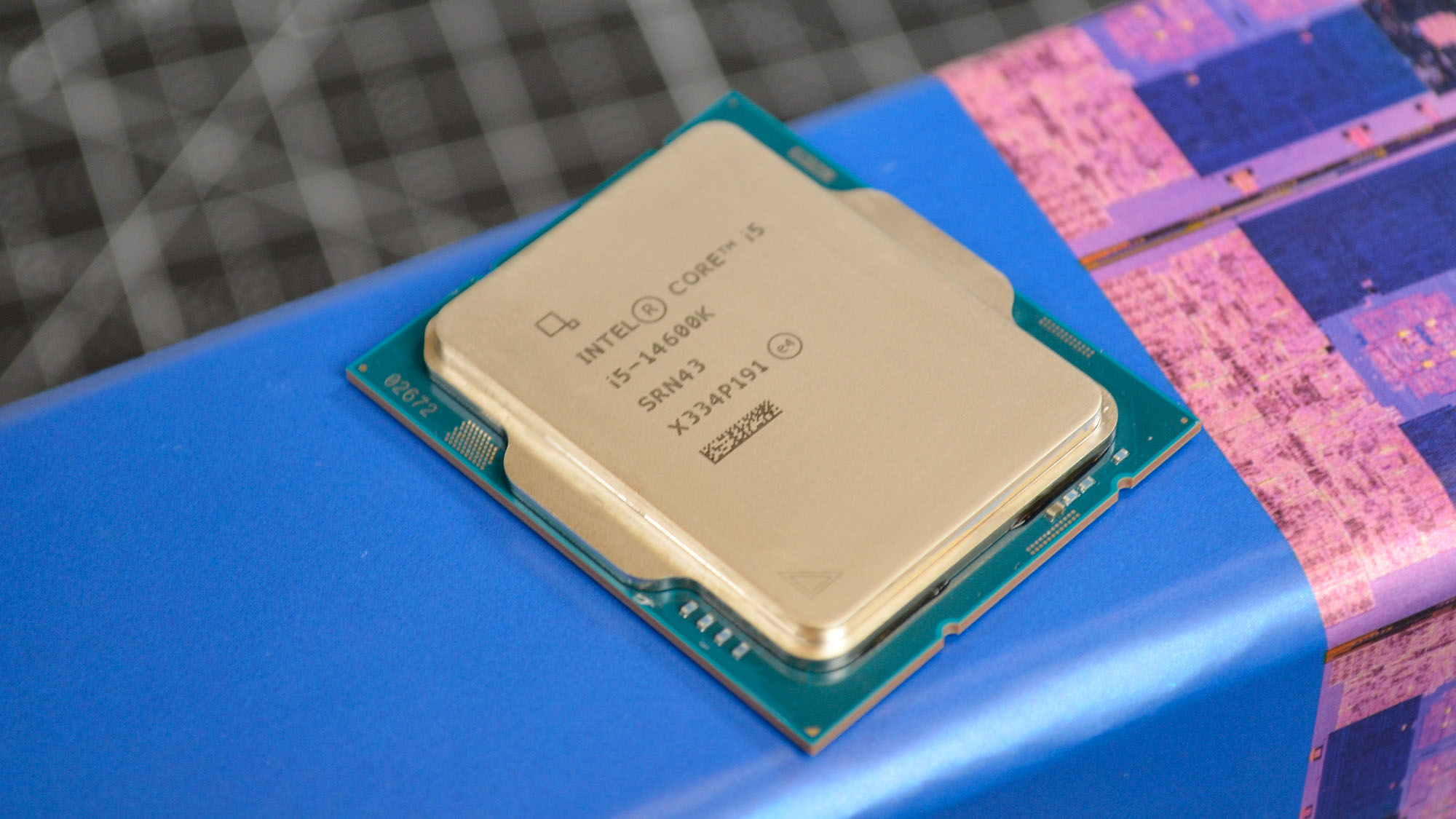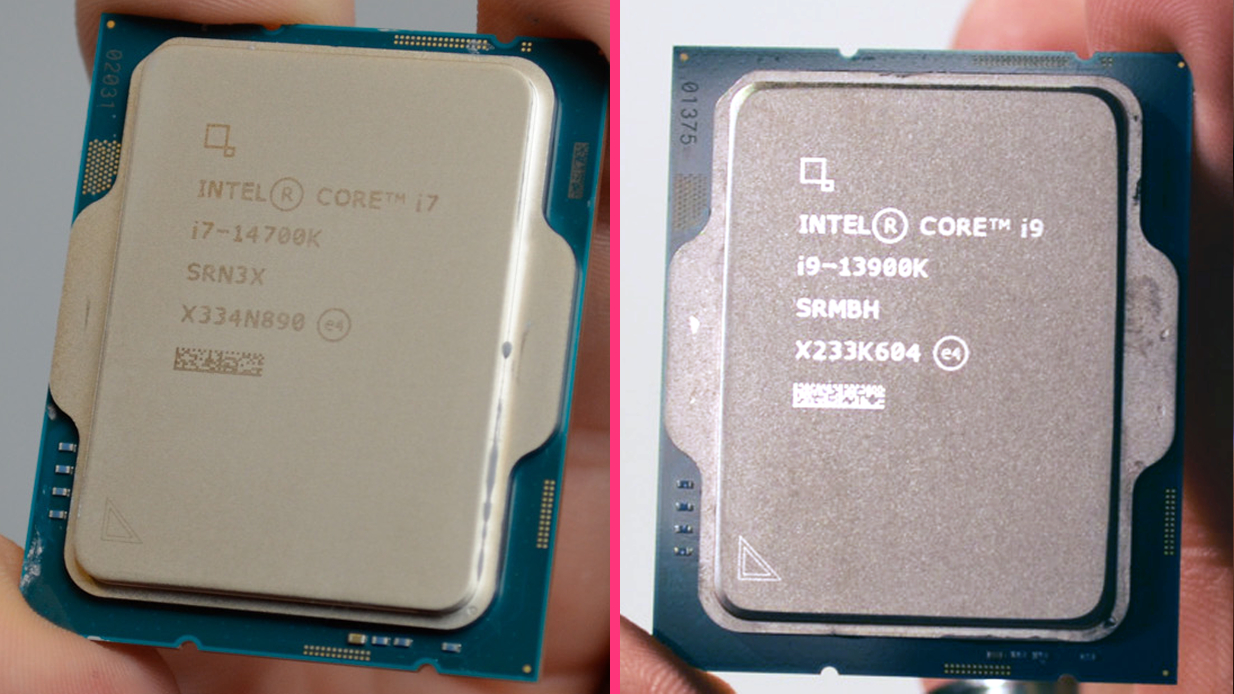Intel’s fix for unstable CPUs is here, in beta, and if you're scared it might slow down your PC it seems that's not the case
Apps and games should be largely unaffected by the microcode update for 13th and 14th-gen CPUs

Intel’s much-awaited microcode update designed to fix instability issues with its 13th- and 14th-gen CPUs – or at least act as a preventative measure – is on the cusp of arriving, and Team Blue has assured us that it doesn’t come with any nasty side-effects on the performance front.
Indeed, the patch is now in beta BIOS versions, notably from Asus, which as Phoronix.com reports has deployed these beta releases for a raft of its motherboards, and the tech site has conducted some performance testing (under Linux). So, how does that match up with Intel’s own benchmarking? Let’s dive in and find out…
TechSpot noticed Intel’s latest statement on the instability gremlins, with Team Blue’s own testing carried out across a range of apps and games to demonstrate there was no performance hit from the patch.
Intel’s benchmarks show that while using ‘Intel Default Settings’ (meaning stock settings, and certainly no overclocking) any performance difference was “within run-to-run variation,” meaning there was no meaningful impact (or any difference was within expected error margins).
This was across tests including 3DMark TimeSpy, Cinebench R24 and Blender 4.2.0. The notable caveat was that “a few sub-tests [showed] moderate impacts” and that included the PugetBench GPU Effects Score.
It was a similar story for gaming tests being within expected run-to-run variations, and this included Cyberpunk 2077, Shadow of the Tomb Raider, and Total War: Warhammer III – Mirrors of Madness. However, there was one exception – Hitman 3: Dartmoor – where the game experienced “slightly more impact.”
So, what did Phoronix.com discover in its testing of the beta microcode patch with an Intel Core i9-14900K processor in an Asus Prime Z790-P Wi-Fi motherboard?
Get daily insight, inspiration and deals in your inbox
Sign up for breaking news, reviews, opinion, top tech deals, and more.
The good news is the site’s results broadly echoed Intel’s findings, given that overall, there was hardly any noticeable difference – but there were occasional bigger drops in performance in certain tests.
Those drops to the tune of 6% to 10% happened in the likes of Python scripting and WireGuard (networking stress test), Phoronix.com observes.

Analysis: no performance worries – and a word on future CPUs, too
In short, the likelihood of the average user seeing any effect is slim, but it’s still possible that the odd application, or game, might witness a bit of an extra performance headwind from the patch. In that case, though, the difference may not even be noticeable, realistically.
Bear in mind that this is a limited set of tests – a batch run by Intel itself, and a batch on Linux – but still, it gives us a pretty good idea of what we’re in for, and it seems as if any fears of a performance hit are unfounded. This is, of course, still a beta release of the microcode update too, so some of the wrinkles in evidence with these test runs could even be ironed out when it comes to release.
The finished BIOS versions with the microcode patch applied should be out soon, as Intel promised they’d arrive in mid-August. Mind you, with the beta only just having emerged, it seems likely the full deployment of the patch will happen later in August – though it should be this month, for sure. After all, Intel can’t really hang around, as folks are quite worried about the health of their CPUs right now.
Another interesting nugget in Intel’s latest statement runs as follows: “Intel is also confirming, based on extensive validation, all future products will not be affected by this [instability] issue.”
Which we presume means future 13th- and 14th-gen processors, as well as next-gen CPU ranges from Intel. This suggests that the microcode update will be baked in for Raptor Lake and Raptor Lake Refresh CPUs going forward, rather than anything having changed on the production side for those existing chips (though it doesn’t rule out the latter possibility, mind).
As you’re probably aware if you’ve been following this saga, Intel is continuing to investigate these instability woes and scenarios where they’re triggered, and also advises in the statement that it will provide a further update on any possible other mitigations by the end of August. That means there could possibly be a further microcode update in the pipeline, too.
You might also like
Darren is a freelancer writing news and features for TechRadar (and occasionally T3) across a broad range of computing topics including CPUs, GPUs, various other hardware, VPNs, antivirus and more. He has written about tech for the best part of three decades, and writes books in his spare time (his debut novel - 'I Know What You Did Last Supper' - was published by Hachette UK in 2013).